The History Book Club discussion

This topic is about
Devil in the Grove
SUPREME COURT OF THE U.S.
>
ARCHIVE - APRIL 2016 - Devil in the Grove: Thurgood Marshall, the Groveland Boys, and the Dawn of a New America by Gilbert King
 I guess I've always assumed that all blacks came from Africa at some point in time. Am I wrong? I grew up in an environment (here in Florida) where the "new" term "African-American" was laughed at and despised for the reasons Samanta wondered about: silly, non-assimilating, etc.
I guess I've always assumed that all blacks came from Africa at some point in time. Am I wrong? I grew up in an environment (here in Florida) where the "new" term "African-American" was laughed at and despised for the reasons Samanta wondered about: silly, non-assimilating, etc. Having read up on the history of American slavery, racism, Reconstruction and the civil rights movement over the last few years, I came to the conclusion that if "they" want to call themselves "African-Americans", then more power to them. I think "African" largely captures their past. And "American" recognizes their present. After all that they've been through, I think they're entitled to call themselves whatever they please, and if a name they choose doesn't seem like they're trying to mix into the "melting pot", then that's their choice, a choice they have earned through blood, sweat, and tears.
Same thing goes for the names often selected for African-American children that don't look anything like Tom, Dick, or Harry. Again, so what? Why does that offend many whites? Whites brought them here in the bottom of slave ships. If they don't want to wear a "slave name", ala Cassius Clay/Muhammad Ali, then I think they've earned the right. But, boy, in certain circles I've run in over the years, you'd think the names were a personal affront to white people. How soon we forget our history.
 Matthew wrote: "I guess I've always assumed that all blacks came from Africa at some point in time. Am I wrong? I grew up in an environment (here in Florida) where the "new" term "African-American" was laughed at ..."
Matthew wrote: "I guess I've always assumed that all blacks came from Africa at some point in time. Am I wrong? I grew up in an environment (here in Florida) where the "new" term "African-American" was laughed at ..."I do some work with genealogy research, which is why I made the comment about, not all black people are necessarily from Africa. There are also Australian Aborigines that are native peoples who are considered black and therefore, not from Africa. These days, through DNA tests, many black people are finding that that are not necessarily, primarily from Africa. There are other people who are dark skinned (not necessarily black but perhaps mixed race) that don't know their heritage at all, that may find out that their background is from another country, but because they don't know, identify as "African American".
 This is an interesting article you all might want to peruse, that talks about what some people prefer to identify as. It is from 2012:
This is an interesting article you all might want to peruse, that talks about what some people prefer to identify as. It is from 2012:"Some Blacks Insist 'I'm not African-American'"
http://www.nbcnews.com/id/46264191/ns...
 Teri wrote: "This is an interesting article you all might want to peruse, that talks about what some people prefer to identify as. It is from 2012:
Teri wrote: "This is an interesting article you all might want to peruse, that talks about what some people prefer to identify as. It is from 2012:"Some Blacks Insist 'I'm not African-American'"
http://www.n..."
Thank you for that article.
"Today, 24 years after Jackson popularized African-American, it's unclear what term is preferred by the community. A series of Gallup polls from 1991 to 2007 showed no strong consensus for either black or African-American. In a January 2011 NBC/Wall Street Journal poll, 42 percent of respondents said they preferred black, 35 percent said African-American, 13 percent said it doesn't make any difference, and 7 percent chose "some other term."
It's quite interesting how the community kind of wants to label itself. In Croatia, we don't have the racial division (for obvious reasons), but we do have an ancestral one. It doesn't matter if you are fourth generation born on the grounds of Croatia (even though it was Yugoslavia back then), if your surname sounds Serbian, you're a Serb (heard it from my own grandma). It's ridiculous. You know that famous Nikola Tesla had the same problem. His father was Serbian, Nikola was born in Croatia and considered himself Croatian, but people are divided even today about his nationality.
 Nikola Tesla
Nikola Tesla
 Chapters 1-5: This is my first time reading a book on Thurgood Marshall. I like the writing style of this book, I am finding that I getting through chapters easy, which is always a plus for me. Plus for me it felt like I was actually there (view spoiler)
Chapters 1-5: This is my first time reading a book on Thurgood Marshall. I like the writing style of this book, I am finding that I getting through chapters easy, which is always a plus for me. Plus for me it felt like I was actually there (view spoiler)
 Rachel wrote: " In the book it talked about how Thurgood was struck down by some mysterious illness?"
Rachel wrote: " In the book it talked about how Thurgood was struck down by some mysterious illness?"Response to Rachel
(view spoiler)
 Welcome Rachel. I'm glad you are joining us. This is turning out to be a great discussion.
Welcome Rachel. I'm glad you are joining us. This is turning out to be a great discussion. Response to Rachel and Samanta - Stress / Illness
(view spoiler)
 Samanta wrote: "Teri wrote: "This is an interesting article you all might want to peruse, that talks about what some people prefer to identify as. It is from 2012:
Samanta wrote: "Teri wrote: "This is an interesting article you all might want to peruse, that talks about what some people prefer to identify as. It is from 2012:"Some Blacks Insist 'I'm not African-American'"
..."
I imagine every country has their issues with some kind of prejudice. Thanks for your insight into Croatia.
 Teri wrote: "Hi Eva. You're right on time for the discussion.
Teri wrote: "Hi Eva. You're right on time for the discussion.Response to Eva - Civil Rights in America
As Bentley and Matthew has mentioned, the level of racial tensions during the 40s was more predominate i..."
Thanks to Matthew, Bentley and Teri for the welcome and your responses! Sorry for not using a spoiler tag.
(view spoiler)
 Bentley wrote: "Prologue - Discussion Questions - Prologue - page 2
Bentley wrote: "Prologue - Discussion Questions - Prologue - page 2Quote from page two:
"A federal judge once told him that with just one look at the smudges or erasures on a lawyer's pleading he'd know if it w..."
Can anyone tell me where the term "cracker" comes from? It's used a lot in the book, but I've never heard anyone say it. I'm from the midwest & west, so maybe it's just not a term we use out here. Isn't it interesting how a term is not offensive if you don't know what it's supposed to convey?
 Marc wrote: "I too am a little late to the discussion, just finished chapter 5. I knew only a little about Justice Marshall (basically, that he was one, he was pivotal in the civil rights movement), but that's ..."
Marc wrote: "I too am a little late to the discussion, just finished chapter 5. I knew only a little about Justice Marshall (basically, that he was one, he was pivotal in the civil rights movement), but that's ..."I have to disagree a little about who we like to work with. I used to teach a Project Management class which was also a little bit of a competition between the table groups. The table with the most diversity - different parts of the company, mix of men & women, different races, different backgrounds - *always* won. I like to think it was because they were able to discuss everyone's ideas because there was no "norm". As an engineer and project manager, I always seek out the most qualified set of people, and often they wind up being very diverse. That said - way to go on pursuing your education and getting to where you want to be. It's stupid, but sometimes arbitrary rules and people's perceptions stop others from doing what's best and most important for them. I wish we'd get away from trying to protect everyone from failure and let them just grow! Einstein said "The only source of knowledge is experience,"
 Robyn wrote: "Bentley wrote: "Prologue - Discussion Questions - Prologue - page 2
Robyn wrote: "Bentley wrote: "Prologue - Discussion Questions - Prologue - page 2Quote from page two:
"A federal judge once told him that with just one look at the smudges or erasures on a lawyer's pleading h..."
Response to Robyn re: "crackers":
Having grown up in Florida I had always heard the term used to refer to whites, with a "redneck"-type connotation. It was understood to be on a par with the n-word, but I never knew the origins of it until I became an adult, probably from the internet. It refers to the old Florida country cowboys and the "crack" their whips made. Seriously, that's it. Hardly on par with the n-word, huh?
 I finished the book this weekend. I just couldn't put it down. The events occurred before I was born, and based on what I read, I've had a very sheltered life. Before reading the book, I knew that Thurgood Marshall was a Supreme Court justice, but now I have a better understanding of why he was on the court. (view spoiler)
I finished the book this weekend. I just couldn't put it down. The events occurred before I was born, and based on what I read, I've had a very sheltered life. Before reading the book, I knew that Thurgood Marshall was a Supreme Court justice, but now I have a better understanding of why he was on the court. (view spoiler)
 Matthew wrote: "Robyn wrote: "Bentley wrote: "Prologue - Discussion Questions - Prologue - page 2
Matthew wrote: "Robyn wrote: "Bentley wrote: "Prologue - Discussion Questions - Prologue - page 2Quote from page two:
"A federal judge once told him that with just one look at the smudges or erasures on a lawye..."
No, not even close. Thanks for educating me!
 Samanta wrote: "Rachel wrote: " In the book it talked about how Thurgood was struck down by some mysterious illness?"
Samanta wrote: "Rachel wrote: " In the book it talked about how Thurgood was struck down by some mysterious illness?"Response to Rachel
[spoilers removed]"
Samanta wrote: "Rachel wrote: " In the book it talked about how Thurgood was struck down by some mysterious illness?"
Response to Rachel
[spoilers removed]"
Thanks Teri :) glad to be here. I am really liking this read along. I have been getting more into the civil rights movement reading wise.
Response to Samatha
(view spoiler)
 Eva wrote: "Teri wrote: "Hi Eva. You're right on time for the discussion."
Eva wrote: "Teri wrote: "Hi Eva. You're right on time for the discussion."Response to Eva - Civil Rights in America
(view spoiler)
 Matthew wrote: "
Matthew wrote: "Response to Robyn re: "crackers":"
Here's some more information around the term. I am originally from the midwest (Missouri) and heard the term a lot, more as a joke, along with hillbilly and redneck. It was considered equivalent to the n-word, yet it was more socially accepted. You never used the n-word under any circumstances, and you rarely said cracker, but if it was used, it was used by a white person to another one as or in a joke.
Thanks Matthew for the information on its origins. I had no idea.
More:
https://en.wikipedia.org/wiki/Cracker...
 by Dana Ste. Claire (no photo)
by Dana Ste. Claire (no photo) by Miles H. Plowden III (no photo)
by Miles H. Plowden III (no photo) by Randall Kennedy (no photo)
by Randall Kennedy (no photo)
 Robyn wrote: "I finished the book this weekend. I just couldn't put it down. The events occurred before I was born, and based on what I read, I've had a very sheltered life. Before reading the book, I knew that ..."
Robyn wrote: "I finished the book this weekend. I just couldn't put it down. The events occurred before I was born, and based on what I read, I've had a very sheltered life. Before reading the book, I knew that ..."Response on Civil Rights today
(view spoiler)
 Teri wrote: "This is an interesting article you all might want to peruse, that talks about what some people prefer to identify as. It is from 2012:
Teri wrote: "This is an interesting article you all might want to peruse, that talks about what some people prefer to identify as. It is from 2012:"Some Blacks Insist 'I'm not African-American'"
http://www.n..."
Teri, great article. thanks
 Teri wrote: "Week 2 Questions
Teri wrote: "Week 2 Questions1. The author devotes a large part of this story describing the forces of laws and justice in Jim Crow South, and he makes it a point to describe Florida as "South of the South." ..."
Response to Teri's Week 2 Questions
(view spoiler)
 Bryan wrote: "Hi folks:
Bryan wrote: "Hi folks:Great book.
Chapter 1-p. 15
I was struck by the sign in TN. Nigger read and run. Don't let the sun go down on you here. If you can't read, run anyhow!
These kinds of towns were commo..."
RE: Sundown Towns
(view spoiler)
 Bryan wrote: "Teri wrote: "Bryan wrote: "Hi folks:
Bryan wrote: "Teri wrote: "Bryan wrote: "Hi folks:Response to Bryan - Chapter 1
[spoilers removed]"
Response to Bryan
(view spoiler)
 Thoughts on Chapter 6
Thoughts on Chapter 6(view spoiler)
Thoughts on Chapter 7
(view spoiler)
Thoughts on Chapter 8
(view spoiler)
 1. How much do you know about Thurgood Marshall prior to reading this book? The Groveland Four case?
1. How much do you know about Thurgood Marshall prior to reading this book? The Groveland Four case?I know very little about Thurgood Marshall. I know that he was a Supreme Court Justice, he was a great advocate for the Black community, I know he was a great lawyer, and I know that there are many schools named after him. In school, I only learned that he was a Supreme Court Justice and he lead the crusade for the case of Brown v. Board of Education.
I guess you never really think about the steps that a person took to get them where they were in life. In Thurgood Marshall’s case, all of the cases that he took on and the people he defended before he became a Supreme Court Justice. I have never heard about the Groveland Boys so I am excited to learn more about it.
2. What is the difference between prejudice and hate? Hate and fear? How are they depicted in the book?
I feel like prejudice and hate really go hand in hand. My understanding of prejudice is an opinion of something without a reason or experience while hate is an intense feeling of dislike. I think to hate something requires you to have met or engaged with something or someone in order to establish that you don’t like it. I think prejudice is the starting foundation for hate because someone can already have preconceived notions about something/someone and say they hate it based on information that they have been given or heard from others.
Just like prejudice and hate, I feel that hate and fear also go hand in hand. Like mentioned before, hate is a strong emotion of dislike for someone or something while fear is an emotion that tells us that something is dangerous and can hurt us. Not to say that everyone is this way, but if you tend to grow up in an area where people think that a certain race is dangerous, you will most likely grow to think that that race is dangerous just because that is most comfortable. (Remember I said most people, I grew up around racist people and am indeed not a complete jerk like them). When people put that fear into a person, they tend to feel hatred because they are unsafe and want to do something about it. In the book, people are fearful of blacks because they rape their women, and that fear turns to hatred as they lynch and create mobs to destroy many innocent blacks.
3. How do you feel about the changing of focus between the chapters? Do you feel that you're getting to know Marshall as his career progresses?
At first, I didn’t really like to focus changing between chapters, but the more that I have read the more that I actually like it. It helps me understand who Marshall was through his career triumphs and also seeing how he interacted and worked with his team. It really gives us an in depth understanding of the previous trials, why he took those cases, and what he was hoping to accomplish with the funds that were accessible to him.
 I'm a little behind but I wanted to add to this topic.
I'm a little behind but I wanted to add to this topic. Response to Samanta: #140: Response to Week 1 Questions
Samanta wrote: "At this point,though, all I want to know is what the heck was going on in Norma Lee's head, playing with people's lives like that."
We haven't discussed Norma Lee much yet and I also wonder what was going through her mind during this whole incident and even in later years. I decided that one way to try to determine that was to try to collect some factual information about her to create a bit of a biography. I've posted what I've found in the Spoiler thread .
(view spoiler)
 Samantha wrote: "1. How much do you know about Thurgood Marshall prior to reading this book? "
Samantha wrote: "1. How much do you know about Thurgood Marshall prior to reading this book? "Response to Samantha - Week One Questions
Hi Samantha. I'm glad you're joining us for this discussion. Don't forget to use the spoiler tags. See messages 5 and 6 for the details to do that. If you need more help, please don't hesitate to ask us here. We're happy to help you.
(view spoiler)
 Catbird wrote: "I'm a little behind but I wanted to add to this topic.
Catbird wrote: "I'm a little behind but I wanted to add to this topic. Response to Samanta: #140: Response to Week 1 Questions
Samanta wrote: "At this point,though, all I want to know is what the heck was goi..."
Thank you for that. I'm definitely going to go through spoiler thread, but I'm want to finish the book first.
 There have been a lot of comments about discrimination and the treatment of African Americans in the South. I the book the author of the book related about how life was better in the north.
There have been a lot of comments about discrimination and the treatment of African Americans in the South. I the book the author of the book related about how life was better in the north.I have lived in Michigan and the Detroit area most of my life. We have had our own problems with discrimination and racism in this area. I remember my dad telling me about a "race riot" in Detroit in the 1940's. See https://en.wikipedia.org/wiki/Detroit....
Our schools were segregated to until the 1960's and many of our schools are separated by race because of where people live.
While the South was more blatant in their approach, the problem with discrimination was present throughout the country. Remember that Truman was the president who desegregated the Armed forces after WWII.
 I have to say that I know little of Marshall. This book makes me want to read a full biography on this important man.
I have to say that I know little of Marshall. This book makes me want to read a full biography on this important man.
 Jim wrote: "I the book the author of the book related about how life was better in the north."
Jim wrote: "I the book the author of the book related about how life was better in the north."Hi Jim ~ I am not sure what you meant by the comment above. If you were mentioning a book, do you have the details? Would love to know if you have a recommendation with citation. However, if it is self-promotion, please remember that we do not allow that. ;-) Thank you!
 Bryan wrote: "I have to say that I know little of Marshall. This book makes me want to read a full biography on this important man."
Bryan wrote: "I have to say that I know little of Marshall. This book makes me want to read a full biography on this important man."I'll be watching your 50 books read for reviews. ;-)
This one looks promising:
 by Juan Williams (no photo)
by Juan Williams (no photo)
 Matthew wrote: "This book discussion is great!"
Matthew wrote: "This book discussion is great!"I'm glad you're enjoying it. Be sure to check out our list of future Book of the Month discussions on message 45 here: https://www.goodreads.com/topic/show/...
 As a resident of SC I am well aware of the Dixiecrats since Strom Thurmond was such a large presence in the state. In 1948, the Democratic Party splintered due to philosophical differences between northern and southern democrats. It was a segregationist political party. At the 1948 DNC convention led by Humphrey, they wanted to reverse Jim Crow and become racially integrated. 35 Democrats walked out and formed the Dixiecrats with a slogan "Segregation Forever" with openly racist views. The candidate was Governor Strom Thurmond of SC. He carried Alabama, Louisiana, Mississippi, and SC in November with 39 electoral votes. Thurmond switched to the Republican party in 1964 and was Senator of SC until he died at 100 in 2003. He almost always ran unopposed as Senator so won reelection every time. He did mellow on his racist views with time and had a biracial daughter, Essie Mae Washington-Williams who died at age 87 in 2013.
As a resident of SC I am well aware of the Dixiecrats since Strom Thurmond was such a large presence in the state. In 1948, the Democratic Party splintered due to philosophical differences between northern and southern democrats. It was a segregationist political party. At the 1948 DNC convention led by Humphrey, they wanted to reverse Jim Crow and become racially integrated. 35 Democrats walked out and formed the Dixiecrats with a slogan "Segregation Forever" with openly racist views. The candidate was Governor Strom Thurmond of SC. He carried Alabama, Louisiana, Mississippi, and SC in November with 39 electoral votes. Thurmond switched to the Republican party in 1964 and was Senator of SC until he died at 100 in 2003. He almost always ran unopposed as Senator so won reelection every time. He did mellow on his racist views with time and had a biracial daughter, Essie Mae Washington-Williams who died at age 87 in 2013.http://www.u-s-history.com/pages/h175...
https://en.m.wikipedia.org/wiki/Essie...
 Helga wrote: "As a resident of SC I am well aware of the Dixiecrats since Strom Thurmond was such a large presence in the state. In 1948, the Democratic Party splintered due to philosophical differences between ..."
Helga wrote: "As a resident of SC I am well aware of the Dixiecrats since Strom Thurmond was such a large presence in the state. In 1948, the Democratic Party splintered due to philosophical differences between ..."Thanks, Helga. Why did he generally run unopposed? Was it that no one just wanted to run or that they didn't want to run against him?
I knew about his biracial daughter. That was quite a headline when it came out.
 Teri wrote: "Helga wrote: "As a resident of SC I am well aware of the Dixiecrats since Strom Thurmond was such a large presence in the state. In 1948, the Democratic Party splintered due to philosophical differ..."
Teri wrote: "Helga wrote: "As a resident of SC I am well aware of the Dixiecrats since Strom Thurmond was such a large presence in the state. In 1948, the Democratic Party splintered due to philosophical differ..."Thurmond changed and left his segregationist ways and even hired the first black staffer. He ended up being liked by Democrats and Republicans and became very popular. So popular that no one wanted to run against him. Those who did lost by huge amounts. We have streets and buildings named after him. Lindsay Graham replaced him after he died.
Books mentioned in this topic
Malcolm X: A Life of Reinvention (other topics)The Most Southern Place on Earth: The Mississippi Delta and the Roots of Regional Identity (other topics)
The Most Southern Place on Earth: The Mississippi Delta and the Roots of Regional Identity (other topics)
Strom Thurmond's America (other topics)
Strom Thurmond's America (other topics)
More...
Authors mentioned in this topic
Manning Marable (other topics)James C. Cobb (other topics)
James C. Cobb (other topics)
Joseph Crespino (other topics)
Joseph Crespino (other topics)
More...


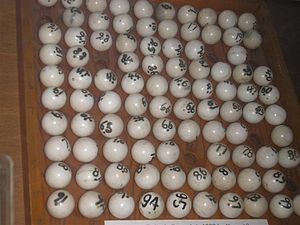
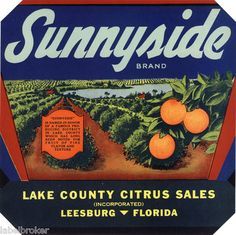
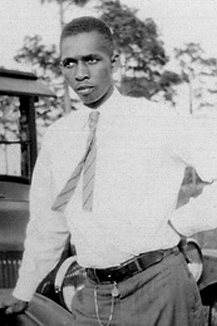
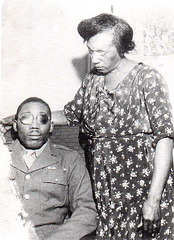
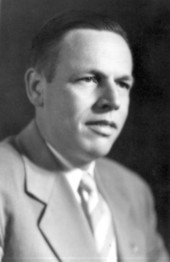
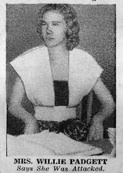







Response to Samanta - Prologue - page 2 - terms
Yes, the "N" word (nigg*r) as it's often referred to is a hig..."
Response to Teri
(view spoiler)[I know that the term is very offensive, because, to be honest, it sound like that even to me, and I am not even remotely connected to the cultural history of it. I can understand why a black person would be offended if a white person called him/her the N word, but I could never understand why it became acceptable for black people to use the word on each other. A very interesting question. (hide spoiler)]